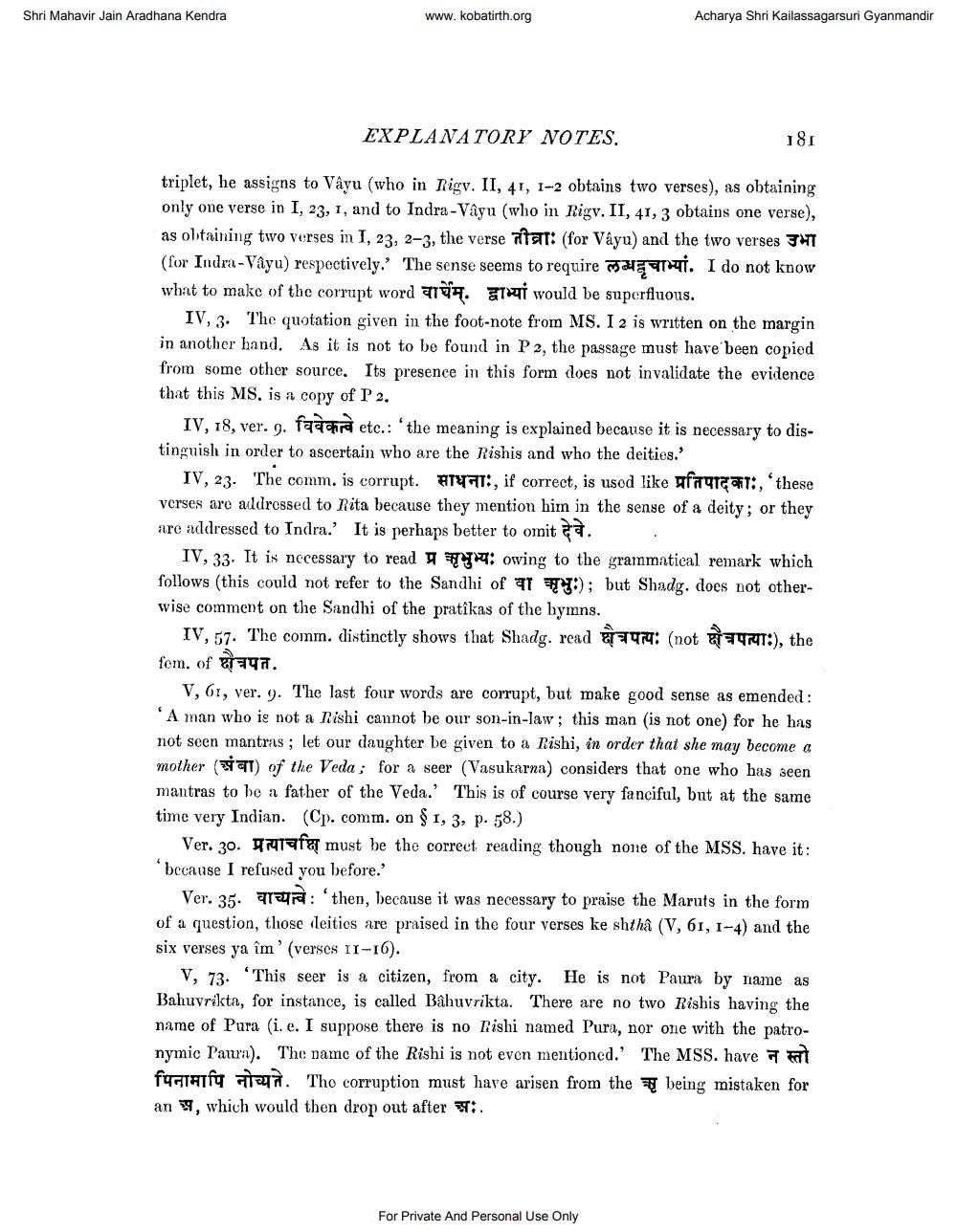________________
Shri Mahavir Jain Aradhana Kendra
www.kobatirth.org
Acharya Shri Kailassagarsuri Gyanmandir
EXPLANATORY NOTES.
181
triplet, he assigns to Vâyu (who in Rigv. II, 41, 1-2 obtains two verses), as obtaining only one verse in 1, 23, 1, and to Indra-Vayu (who in Rigv. II, 41, 3 obtains one verse), as obtaining two verses in I, 23, 2-3, the verse at: (for Vayu) and the two verses 3HT (for Indra-Vậyu) respectively. The sense seems to require ati. I do not know what to make of the corrupt word वाम. द्वाभ्यां would be superfluous.
IV, 3. The quotation given in the foot-note from MS. I 2 is written on the margin in another hand. As it is not to be found in P2, the passage must have been copied from some other source. Its presence in this form does not invalidate the evidence that this MS. is a copy of P2.
IV, 18, ver. 9. faoina etc.: 'the meaning is explained because it is necessary to distinguish in order to ascertain who are the Rishis and who the deities.'
IV, 23. The comm. is corrupt. #TYFT:, if correct, is used like faytgat:,'these verses are aldressed to Rita because they mention him in the sense of a deity; or they are addressed to Indra. It is perhaps better to omita
IV, 33. It is necessary to read : owing to the grammatical remark which follows (this could not refer to the Sandhi of 91 :); but Shadg. does not otherwise comment on the Sandhi of the pratîkas of the hymns.
IV, 57. The comm. distinctly shows that Shadg. read : (not 47:), the fem. of 29.
V, 61, ver. 9. The last four words are corrupt, but make good sense as emended: A man who is not a Rishi cannot be our son-in-law; this man is not one) for he has not seen mantras ; let our daughter be given to a Rishi, in order that she may become a mother (at) of the Veda; for a seer (Vasukarna) considers that one who has seen mantras to be a father of the Veda.' This is of course very fanciful, but at the same time very Indian. (Cr. comm. on § 1, 3, p. 58.)
Ver. 30. grafa must be the correct reading though none of the MSS. have it: * because I refused you before.'
Ver. 35. alza: 'then, because it was necessary to praise the Maruts in the form of a question, those leitios are praised in the four verses ke shtha (V, 61, 1-4) and the six verses ya îm' (verses II-16).
V, 73. 'This seer is a citizen, from a city. He is not Paura by name as Bahuvrikta, for instance, is called Bâhuvrikta. There are no two Rishis having the name of Pura (i.e. I suppose there is no Kishi named Pura, nor one with the patronymic Paurn). The name of the Rishi is not even mentioned.' The MSS. have a fYGIATT Han. Tho corruption must have arisen from the being mistaken for an , which would then drop out after :.
For Private And Personal Use Only




